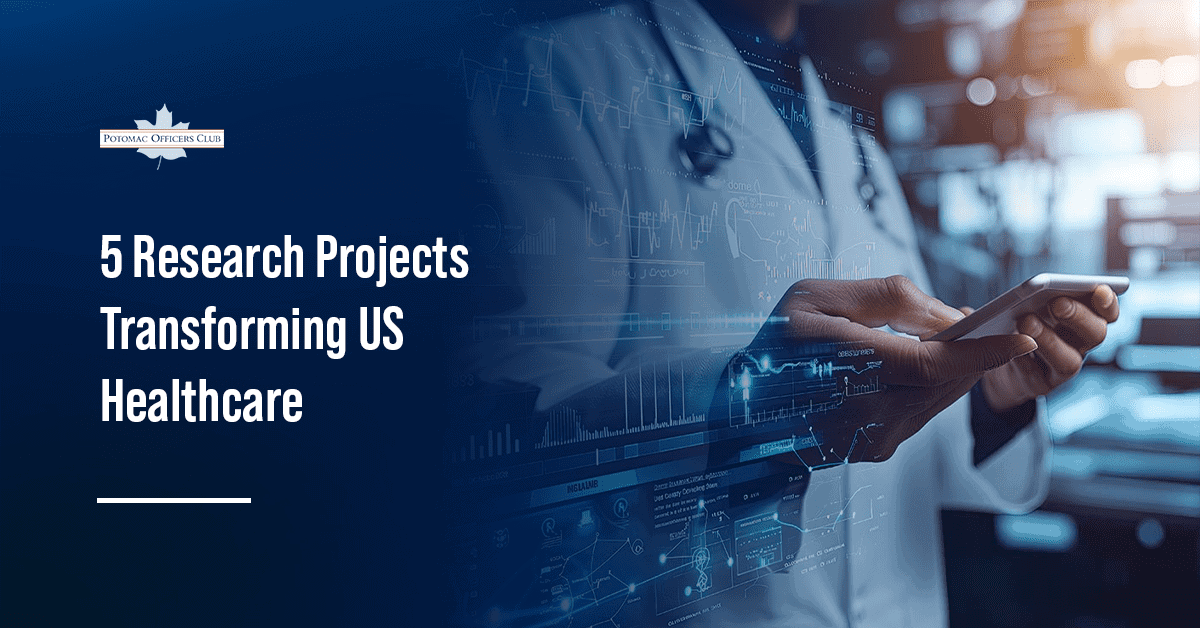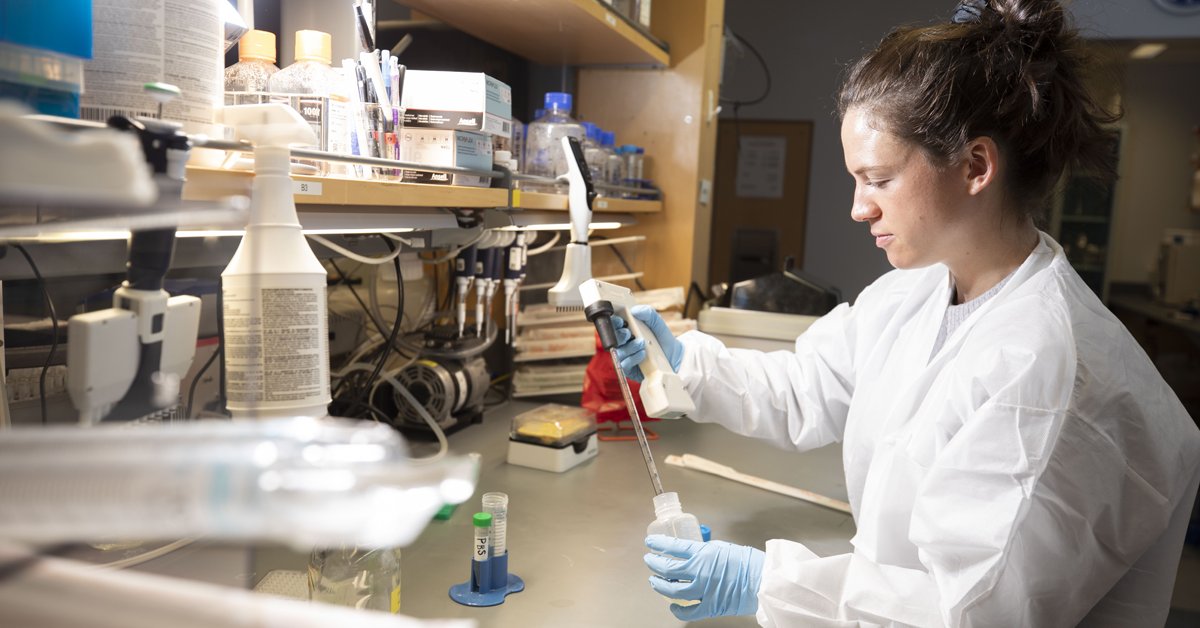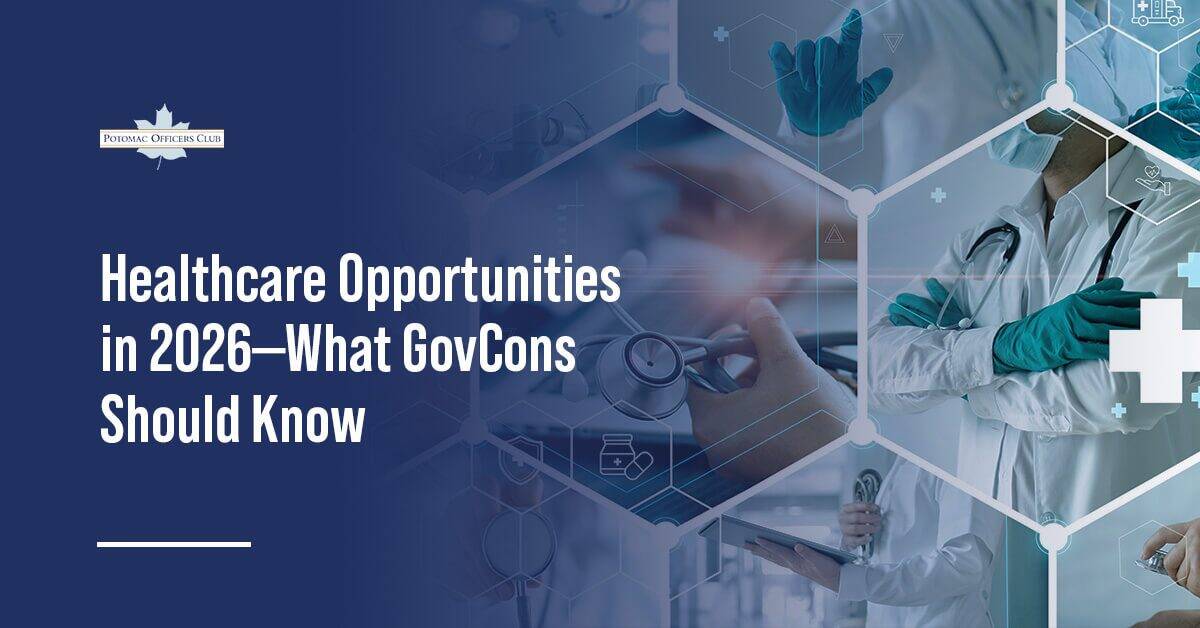
5 Research Projects Transforming US Healthcare
The Advanced Research Projects Agency for Health, or ARPA-H, is designed to tackle the toughest problems in healthcare. It advances programs in biomedical and health research that have both great potential and high impact for projects that need help not available through usual research or commercial methods.
ARPA-H in 2025 made a number of contract awards for individual research projects that are similar to its research focus areas, but don’t qualify for an ARPA-H program or initiative. Let’s dig into the agency’s biggest contract awards for individual research projects that leverage the most cutting-edge technologies and promise to revolutionize health care in the years to come.
Discover new contract opportunities for advanced technologies in healthcare at the Potomac Officers Club’s 2025 Healthcare Summit on Feb. 12! Hear directly from leading industry executives and federal officials during the “Cloud-First, AI-Ready: Powering the Next Generation of Public Health Services” panel discussion. Secure your seat for this elite GovCon event today! Use the promo code HC25AI for a 25 percent discount.
1. Better Hunger Regulation
Most people stop eating after being told by a biological mechanism that tells them they are full after consuming a meal. But some people lack this feature, called satiety, leading to negative consequences from obesity and diet-related diseases.
VitaKey in May received a contract from ARPA-H worth as much as $62 million for time-controlled nutrient release technology, more formally known as nutrition-based satiety modulation. This technology seeks to provide Americans access to affordable, effective and safe satiety modulators.
“This real-world impact will improve the lives of Americans through innovation and the use of natural health-promoting technologies that are affordable and designed to prevent disease, not simply treat their symptoms,” Aaron Anselmo, VitaKey executive vice president and chief scientific officer, said in a LinkedIn post.
The Nutrition Based Satiety Modulation project has a goal of identifying, characterizing and developing precision delivery nutrition platforms. It will start with testing compounds generally recognized as safe that have satiety modulation potential. Different from pharmaceuticals like GGLT2 inhibitor and GLP-1R agonists, VitaKey will use natural mechanisms to regulate the body’s satiety responses to food consumption.
The idea is to create compounds that can be added safely to food for wide distribution. VitaKey also wants to provide accessible and affordable solutions for obesity, especially compared to modern pharmaceutical weight-loss treatments. ARPA-H believes nutrition-based satiety modulation could vastly reduce many chronic diseases, including cardiovascular disease, cancer and diabetes.

2. Using AI to Fight Disease
Healthcare is no exception to the industries that AI will revolutionize. Antibodies are already useful as therapeutic and preventative methods against autoimmune disorders, cancers and other diseases. But typical methods for discovering new antibodies are constrained by inefficiency, steep costs and high fail rates, long turnaround times and limited scalability.
A team of researchers at Vanderbilt University Medical Center seek to use AI to change that.
VUMC in January was awarded a contract potentially worth $30 million to create new AI-based algorithms and technologies to produce novel monoclonal antibody candidates for future translational research and clinical validation.
Researchers in this program, AI-Enabled Generation of Antigen-Specific Antibodies, will develop a giant antibody-antigen directory, create these AI-powered algorithms and apply AI to target, and create, possible therapeutic antibodies. The VUMC researchers seek to address these bottlenecks in the typical antibody discovery method and make it more democratized.
You can figure out what your antigen target is and have a good chance of generating a monoclonal antibody therapeutic against that target in a very effective and efficient way —Ivelin Georgiev, PhD, the project’s principal investigator
The team has a goal for this atlas to include hundreds of thousands, and possibly more than 1 million, antibody-antigen pairs. This is in comparison to roughly 15,000 pairs that are commonly available from published data, creating an extraordinary resource for researchers across the world.
Are you a GovCon technology executive with a healthcare portfolio? The Potomac Officers Club’s 2025 Healthcare Summit on Feb. 12 is the can’t miss event of the year!. Discover how federal officials are using AI in their work at the “Cloud-First, AI-Ready: Powering the Next Generation of Public Health Services” panel discussion. Engage in the valuable face-to-face conversations that only take place at live events.. Sign up today! Use the promo code HC25AI for a 25 percent discount.
3. Leveraging Edge Computing to Combat Diabetes
A University of North Dakota team is using edge computing to transform how to forecast disease, boost health outcomes, slash costs and reduce the necessity for acute interventions in medicine. ARPA-H in August awarded this team a contract worth up to $17 million for the D3PH: Decentralized Diabetes Data Platform for Senior Health Management effort.
The UND team will specifically use edge computing technology to develop cutting-edge machine learning models that will better predict and improve diabetes foot ulcer and wound healing. These are for seniors with diabetes in a variety of long-term care facilities.
The squad has other goals than just piloting the technology for diabetes issues. Success in this program would also enable federated data sharing and model development and deployment. These could be used for other conditions and allow cost-effective and efficient preventative health interventions.
4. Using Digital Twins to Help People With Disabilities
The University of Pittsburgh wants to use advanced technologies including robotics and digital twins to help people with disabilities live fuller, more independent and productive lives. ARPA-H in September awarded a UP team a contract worth up to $41 million for RAMMP: Robotic Assistive Mobility and Manipulation Platform Providing Independence for People with Disabilities.
The squad wants to create RAMMP via an open-source assistive technology operating system and digital twins to revolutionize AT development. RAAMP should allow Americans more independence through semi-autonomous operation and less reliance on support staff.
RAAMP’s robotics and AI progresses cutting-edge research. It will also provide a foundation for commercial applications, revolutionizing robotics-based AT.
Robotic-assisted rehabilitation has grown significantly in the past decade as it has several advantages over traditional care, including allowing patients to recover faster from musculoskeletal and neurological conditions. Robotic rehabilitation can be performed at a higher frequency and intensity and can generate better movements and forces during exercise, according to the National Institutes of Health.
5. Better Cybersecurity in Healthcare
Cybersecurity in healthcare has never been more important. Aged care and community providers, health departments, diagnostic service providers and primary practices are just some facilities that are vulnerable to identity and data theft and having systems held for ransom.
Using cybersecurity to protect sensitive health information is of critical concern to the federal government. A contract recently awarded to the University of Texas-MD Anderson Cancer Center extends a project previously funded by the Department of Energy into the healthcare realm.
ARPA-H’s award, worth as much as $3.4 million, is for the Cyber Health Intelligence: Sensing and Self-Healing Cyber Vulnerabilities in Healthcare Ecosystems program. It should drastically bolster cyber defenses when applied to the full ecosystem of connected devices in healthcare and combined with new orchestration and machine learning capabilities.
MD Anderson plans to achieve this ambitious goal by using a demonstrated approach, taking machine learning technologies to enumerate and define cybersecurity vulnerabilities and affiliated weaknesses. It will also use a strategy of prioritizing weakness mitigation through interactive prompting methods.
Is ARPA-H Shutting Down?
The federal government has largely closed due to Congress’ inability to pass appropriations legislation. ARPA-H is one agency that is not closing during the shutdown as it was provided three-year appropriations in fiscal years 2024 and 2025. The balances from these carry over and are enough to support ARPA-H operational during the shutdown, according to the Department of Health and Human Services.

Category: Articles





